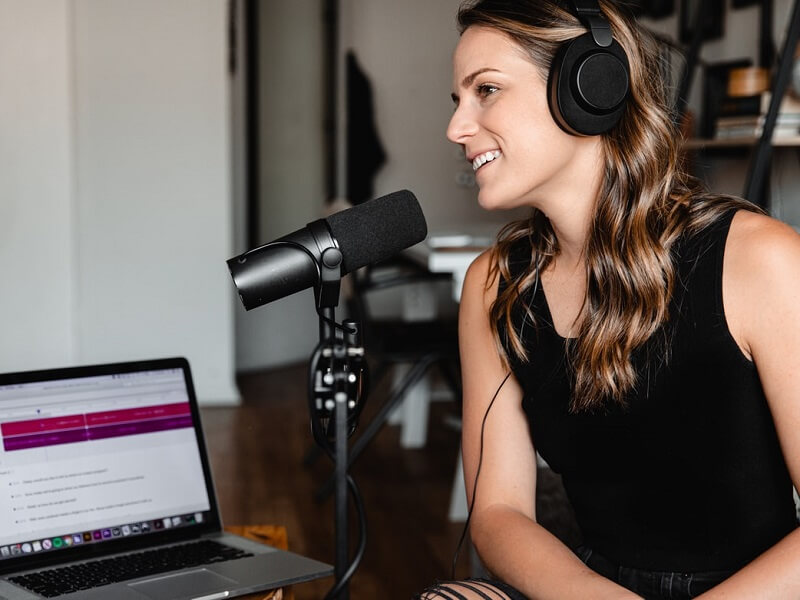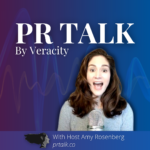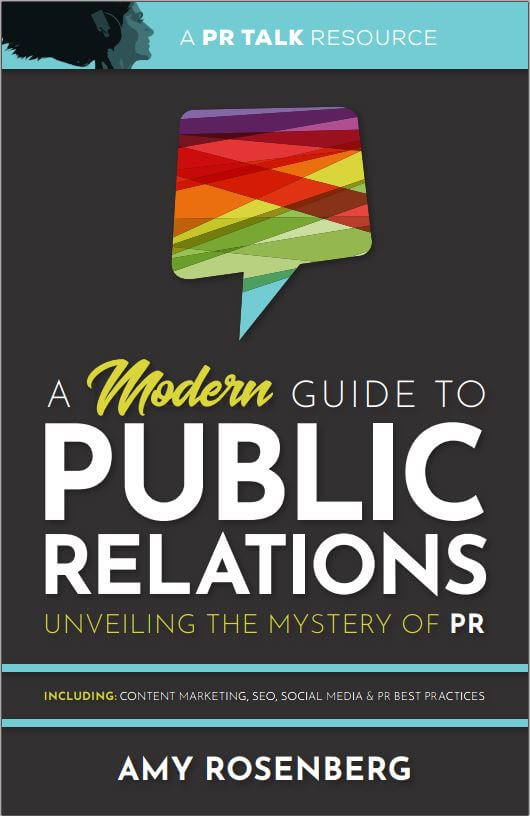Podcasts and Digital PR Go Hand-in-Hand. Here’s How.
With podcasts now cemented as a staple of many people’s media diet, it’s easy to forget how young this medium really is. The word podcast first appeared in print in 2004, and for the next five years, this new form of online radio appealed primarily to a niche audience of early adopters. A 2009 survey revealed that only 43% of Americans were aware of podcasts and audience growth remained slow for years until 2014 when the podcast Serial* became an overnight cultural phenomenon. Suddenly, podcasts were big business, and listenership doubled to 90 million over the next five years. Today, more than two million active podcasts exist, and American listenership stands at more than 100 million. Those eye-opening statistics are enough to make any public relations (PR) pro take notice.
*Admittedly Serial was the first podcast I ever binged…it is so good!
The Same Principles Apply
While the podcasting medium is relatively new, the techniques PR pros use to leverage them are not. PRs learned how to harness the internet’s insatiable content appetite for their client’s benefit long ago. The same principles apply here. Not only are podcasts always hungry for new content, but many also include valuable link opportunities that support broader SEO efforts. What’s more, Google is now indexing and featuring podcast content, making these shows a critical component of every digital media list. So how do PRs begin accessing the large new audiences this medium can reach? They can start by booking podcast appearances for their clients.
Booking Clients on Podcasts
The most common way of leveraging the power of podcasts is by positioning a person from a company to share their opinions or insights into a relevant product, service or industry. PRs create these opportunities in the same way they do with other mediums: by building a media or target list.
Building a Podcast List
The audience should be your first consideration as you begin to build a list. To start to segment, I’ll put podcasts into a few broad categories:
- Entertainment: These podcasts cover a variety of topics and appeal to a broad group of listeners. Sports, celebrity entertainment, news, history, how-to, food & drink, etc., etc.
- Industry or Trade-Specific: This podcast category generally features smaller audiences. However, they’re typically more targeted and highly engaged. From a PR perspective or media relations perspecitve, think of the trade outlets or industry publications.
- Media-Hosted: These are newsy podcasts produced by media organizations.
- Traditional-First Podcasts: Some organizations syndicate their radio and television programs in podcast feeds.
Once you’ve selected the categories you want to target, it’s time to find specific opportunities. We start this process with a media database search (we use Muck Rack), use podcast specific tools like Podchaser, and/or search Google. We also discover new opportunities by asking our clients what podcasts they listen to or are interested in pursuing.
After you’ve identified several possibilities, refine your media list by asking a few critical questions:
- Does the podcast follow an interview format? If not, there’s probably no role for your client to play.
- How does the podcast publish? Do the episodes live on a website, or are they only hosted through one of the popular podcast syndicators? If the podcast is not hosted on a website, there is less opportunity for a valuable link or mention.
- Do they offer an episode write-up that includes links for the guest? If so, are they follow or no-follow links? What is the podcast website’s domain authority?
- Is the podcast well established with a high and/or engaged audience? Are they still publishing? There are many podcasts that you will find that are no longer creating new episodes, you don’t want to pitch these.
- Does the podcast host have a strong and engaged social following? If so, do they share podcast episodes on their social channels?
With the answer to these questions in hand, you’ll be in a more favorable position to select the opportunities that best match your objectives. Now it’s on to the pitch.
Creating a Podcast Pitch
Pitching guests to podcasts can be different from pitching story ideas to the media. Sometimes you need to send an email to the host, and some podcasts have online forms you need to fill out. Other times you might pitch a producer. Each podcast approaches its booking process differently, and you’ll need to do some legwork to figure this out.
Before sending out pitches, we often create podcast bio pages for our clients with their social media links, a short bio and topics they’re interested in discussing. You could also include links to other podcast appearances or keynote addresses they’ve given. Make sure you include the company URL in your client’s biography so when the interviewer copy-pastes that information into the show notes, you’ll get some added SEO value.
As you begin drafting your pitches, come up with a few general topics your client can talk about. Then turn those topics into specific ideas that will resonate with each podcast’s audience. Current event content is always highly desirable. Make sure to include the URL for your client’s website bio page. This cannot be a set-it-and-forget-it process. You must put thought into every pitch you send out if you want to get your clients booked.
Other Considerations
After you’ve booked a client and they’ve completed their interview, don’t forget to send the host or producer an after-interview thank you email. Within this note, be sure to include links to your client’s social handles, key company links and the desired headshot. Not only will these messages convey your genuine appreciation, but they’ll also serve as subtle reminders that you’d appreciate a link opportunity in return for providing valuable content.
You’ll also find many pay-to-play opportunities in the podcast world. You can evaluate these opportunities the same way you’d consider a sponsored content post. How much does it cost? What’s the reach? Will you receive a link? If so, what kind of link?
Now you have a framework for pursuing all the opportunities other people’s podcasts can bring you. However, there’s a whole other side of this media modality that can serve PRs and their clients in big, big ways.
Creating Your Own Podcast
While creating your own podcast takes a lot of time and money, it also brings plenty of advantages from a content marketing perspective, particularly for link building. For starters, all the leading players like Apple, Spotify, Stitcher, Amazon and Google provide descriptions that can point back to your website when you send them your podcast (only Google actually has a link, which is no-follow). However, getting the most out of your podcast from a digital PR perspective requires a few essential things.
- You must have a place on your website to house podcast content. Otherwise, you won’t get the value of any links or mentions your podcast earns.
- You also need to include a write-up of each podcast episode. That way, when you promote your podcast, it generates traffic and links back to your website. However, this adds another layer of time and cost to podcast content creation.
Booking Guests for Your Podcast
If you’re creating a podcast for digital PR purposes, you’ll also want to book guests so there will always be someone else to share the content. But booking guests brings another set of questions. Do you target big names? Or do you stick with up-and-comers?
Both approaches have their pluses and minuses. Well-known guests add credibility to your podcast and may bring their own audiences to your show. However, they’re also harder to book and may be less likely to share your content. On the other hand, up-and-comers may be more excited to appear on your show and more excited to share, but they don’t always have an existing audience you can co-opt.
One way to solve the sharing problem is to follow up with your guests after the interview or when the podcast launches, asking them to share it on their social feeds. You can also include suggested post copy to make the sharing process as easy as possible. Sometimes that soft extra nudge is all it takes.
A Tool You Should Learn to Use
Podcasts are an incredibly effective tool to share your client’s message with targeted and engaged audiences. They can also play a critical role in link-building strategies for PRs who want to help their clients leverage every possible benefit from these hard-won opportunities. As the popularity of podcasts continues to grow, PRs everywhere should become podcast experts. If not, they risk missing out on valuable opportunities and exposure for their clients and themselves.









